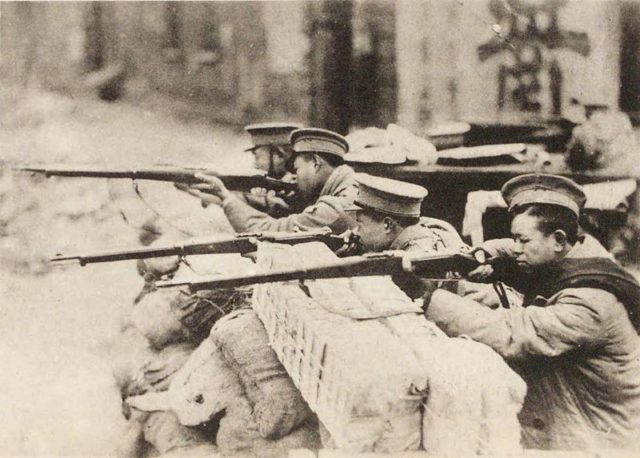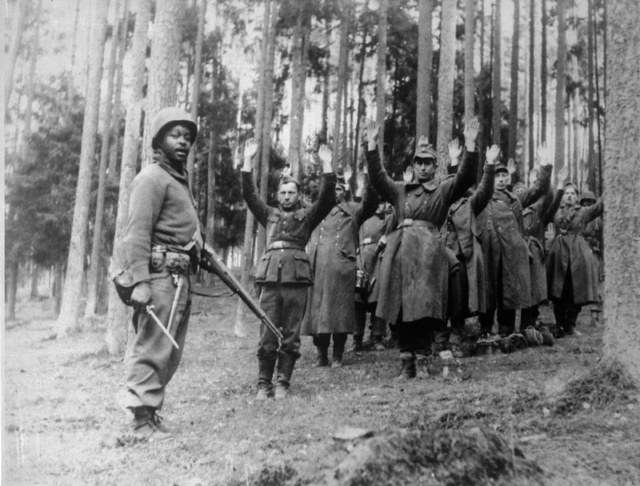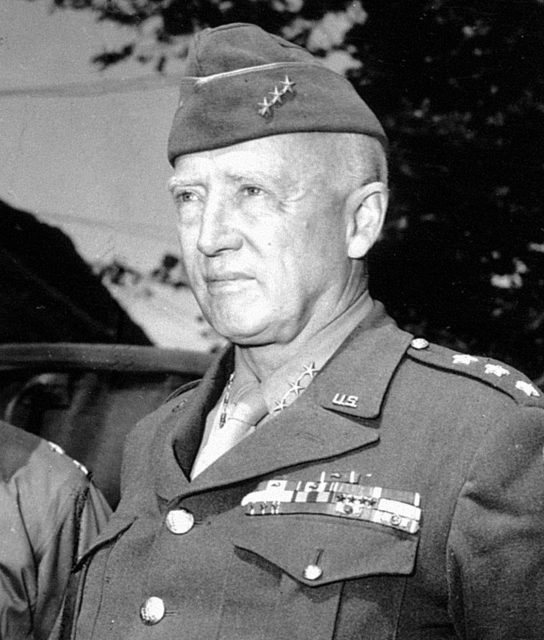Edward Allen Carter Junior was born on May 26th, 1916 in Los Angeles, California. Carter had a unique upbringing. His father was an African-American missionary, and his mother was an Indian from Calcutta.
The family later moved to Shanghai, China, where Carter attended military school. Besides his native English and Hindi (India’s national language), he quickly picked up Mandarin and German, which he put to good use by running away from home.
It wasn’t to spite his parents, however. It was because of the Shanghai Incident. Japan had been chipping away at China for decades, but in 1932, they escalated things with a bombing campaign against the city of Shanghai that lasted from January 28th to March 3rd.
Enraged, Carter joined the Chinese Nationalist Army to fight the Japanese… without telling them that he was only 15. He did so well that he quickly rose through the ranks to become a lieutenant. The Chinese were delighted! At least until the following year when they found out that he was only 16.
So they sent him back to his parents in Shanghai, where he went back to his military school. But Shanghai was no longer safe, so the family returned to the US.
Carter, however, was no longer the same. He claimed that during his stint with the Nationalist Army, he was visited by a spirit who told him that he was destined to become a great warrior. The spirit also promised that he would never die in battle – it lied.

Back in America, Carter attempted to fulfill his destiny by trying to enlist in the US Army. They wouldn’t have him, so in 1936, he made his way to Spain where trouble was brewing.
The Spanish Civil War had begun. On the one side were the Republicans, loyal to the Second Spanish Republic, while on the other were the Nationalists loyal to General Francisco Franco.
The XV International Brigade (also called the Abraham Lincoln Brigade) sided with the Republicans. Carter couldn’t resist joining them, of course, and ended up becoming a corporal. It didn’t last. By 1938, Franco was winning, forcing the Brigade out of Spain.

Carter made his way back to the US and later joined the army in 1941. Sent to Fort Benning, Georgia, he faced another war even before America entered WWII. Though willing to die for their country, enlisted blacks who spoke up against the discrimination and violence they faced were punished with a dishonorable discharge.
Wanting to stay in the army, Carter had no choice but to swallow his pride. So although his considerable experience got him promoted to staff sergeant, he had to keep his mouth shut when they gave him the exciting job of an army cook.
Carter’s case was unusual, however, and it wasn’t just because he was black. On May 18, 1943, an intelligence officer at Camp Benning opened a file questioning Carter’s involvement with the Abraham Lincoln Brigade.
Since Spain was an ally of Nazi Germany, America had no love of Franco – but they loved communism even less. And since the Brigade espoused socialist ideals, that put them on America’s communist watch list. From that moment on, Carter’s every move was closely monitored as a possible hostile agent.

Still, there was a war going on. Despite the government’s unflattering views of black people, necessity forced their hand – which was how Carter found himself in Europe in 1944.
But attitudes don’t die easily. The army wasn’t happy about sending black people to the front lines, preferring to keep them in supporting roles such as cooks and cleaners. And Carter? The supplies department. As the death toll continued to rise, however, things had to change.
Desperate for action, Carter took off his staff sergeant stripes and became a volunteer private in the 7th Army Provisional Infantry’s 1st Company. They put him in the 56th Armored Infantry Battalion of the 12th Armored Division, where things started to change.
Carter’s experience showed itself in his poise and leadership. Company commander Captain Floyd Vanderhoff certainly noticed – which was why he reinstated Carter’s rank of Staff Sergeant and made him an infantry squad leader.
General Patton also noticed, which was why Carter became one of his personal bodyguards. For Patton had an arch-enemy, and it wasn’t Hitler – it was British General Sir Bernard Montgomery. Though fighting on the same side, Patton and Montgomery were in a deadly race to be the first into Germany.

The 12th were also called the “Mystery Division” because they removed identifying insignias and were attached to different units. As part of the US 3rd Army, Carter crossed the Rhine River to the west of the German city of Mainz on March 22, 1945. Patton had won, but it wasn’t over yet.
On March 23, Carter was in a tank making his way to the German town of Speyer when his convoy was attacked. A bazooka took out his tank, so he and three others jumped out – but there was a problem.
They were in an open field with the tank as their only protection. Stay put, and another hit could shred the tank, ripping them apart with shrapnel. So they ran – two were killed, another was seriously hurt, leaving only Carter.
Despite being hit five times, he continued running until he reached cover. Eight Germans rushed him, so he shot six, grabbed the other two, and continued running across the field till he reached his unit. The Germans refused to fire on their own, which was a good thing because Carter’s “shields” later provided valuable intel.
Carter got the Distinguished Service Cross, but his alleged communist sympathies prevented him from re-enlisting. The government eventually apologized and showered him with awards, including the Medal of Honor in 1999. Unfortunately, Carter passed away in 1963 – meaning he never saw his medals.
